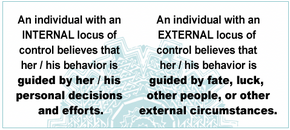No, I don't. I can see a lot of "explanations" for what he did.
First of all, I read my previous post again, and maybe it may look a bit aggressive; it was not my intention, so if you felt attacked, please excuse me

Well, I read the OP's first post and it seems to me that he is totally aware of the training rules he broke; indeed, the first three points he mentioned were a "what went wrong" and summarize more or less all the broken rules/standards.
Therefore, I believe that the OP is not looking for a refresh of rules/standards (read it: stuff we can learn in any acceptable course), but how to psychologically manage situations that may result in human mistakes. In other words, something more related to human factors than to standards.
But this is just my view
Also, could you help me understand why you mention that CO2 causes narcosis?
Sure

I risk telling you many things that you already know, but at least I'll make my reasoning clear... so, the thing is that CO2 is way more narcotic than any other gas (
way more). There are references describing the narcotic power of CO2, in case someone here is interested in them, have a look at this thread starting from post #31 to, at least, post #35:
@wedivebc, CO2 is actually 25x more lipid soluble than nitrogen. Solubility doesn't tell the whole narcosis story though. The physiological effects of CO2 impart an even higher narcotic effect than the 25X solubility factor. https://www.gue.com/carbon-dioxide-narcosis-and-diving

scubaboard.com
Now, given that CO2 is so narcotic, I made the following assumptions:
- the OP was stressed, therefore his breathing rate was probably fast -> therefore increasing CO2 in the bloodstream
- the OP was rushing, therefore working hard -> increasing CO2 in the bloodstream even more
[Obviously, my assumption can be wrong]
As I mentioned, I am not a doctor -> so I am not sure at which depth CO2 narcosis starts becoming a serious issue. To be honest, I understood very little of this subject from a physiological perspective - it is fairly complicated. But, as far as I understood it,
air narcosis can start being significant at depths as shallow as 30m, and being CO2 way more narcotic, it seems reasonable to me that 18/20m may become a risky depth.
Also, as I said I believe that the OP is totally aware of the standards/rules he broke. That made me think that his poor judgement underwater comes from factors other than his training, and I can see only 2 of them:
- human factors;
- psychological impairment.
Now, human factors, in this case, came, IMHO, from social pressure (e.g. the OP wanted to do something, but his buddies wanted to do something else and put pressure on him to adapt).
Psychological impairment can come from several things, but the only reasonable one that I can find is narcosis (there could be pre-diving stress, psychological or physical, but I believe the OP would have mentioned it).
[NOTE: Clearly, there may be other reasons, and I would be happy to hear them

]
This is why I introduced CO2. Again, I am far from being sure that it can actually be a serious issue at these depths, and I would really like to hear what people with more experience than me think




